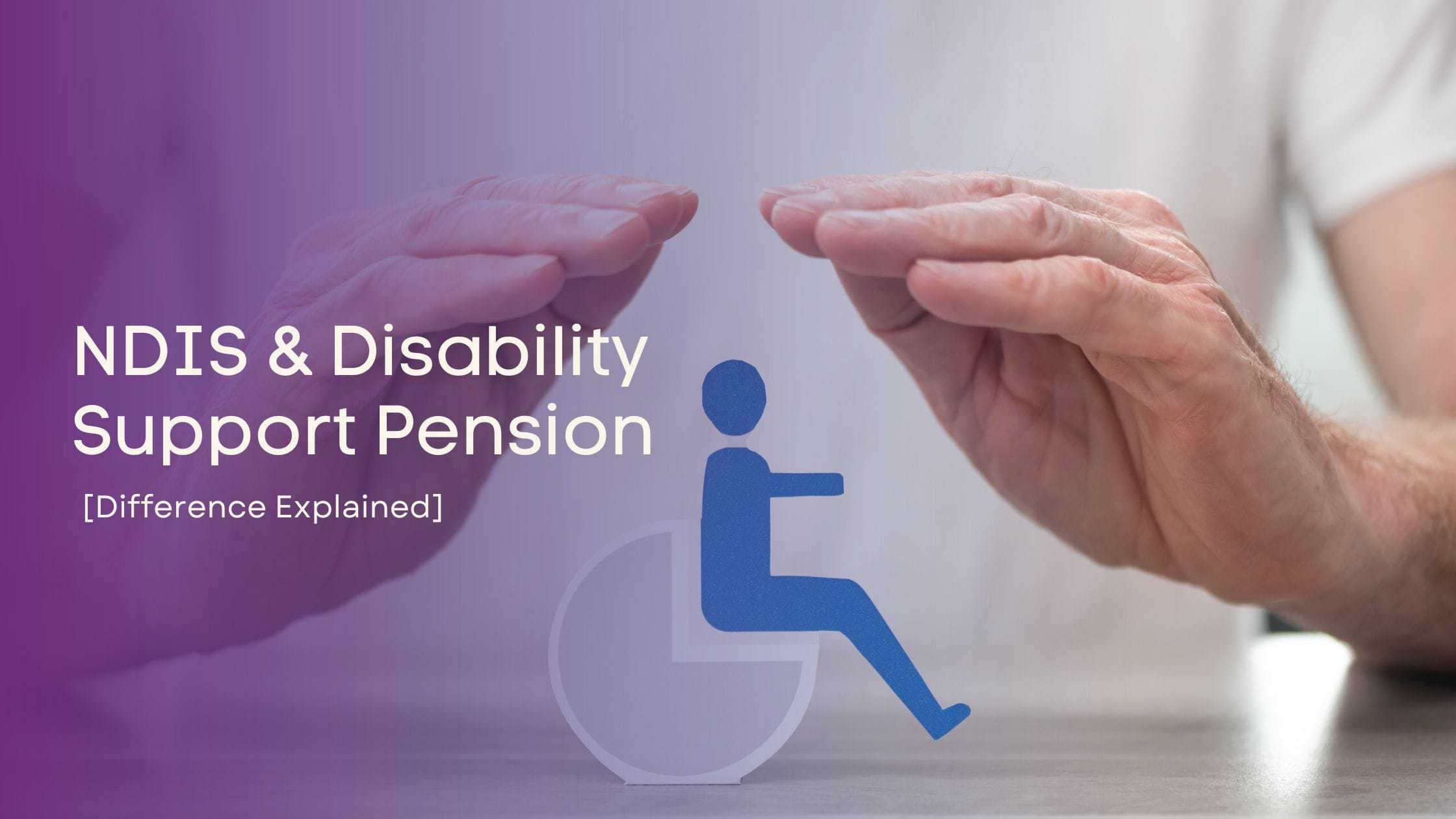The National Disability Insurance Scheme (NDIS) and the Disability Support Pension (DSP) are two different programs that provide support for people with disabilities in Australia. However, many people may wonder how they are related and whether one affects the other. In this blog post, we will explain what NDIS and DSP are, who can get them, and how they are different from each other.
What is NDIS?
NDIS stands for the National Disability Insurance Scheme. It is a new and improved method of providing individualised support for individuals with disabilities. It also includes support for the family and caregivers involved in the participant’s life.
The NDIS offers financial support to Australians under 65 dealing with a permanent disability affecting their daily life. This assistance helps them lead a typical life by meeting their reasonable and necessary needs.
The NDIS is not a welfare program, but rather an insurance scheme that covers everyone who meets the eligibility criteria. The NDIS is funded by a levy on income tax and by contributions from the federal and state governments. People can access to the services by reaching out to NDIS Providers.
The NDIS provides funding for various types of support, such as:
- Daily personal activities
- Transport to access education, work or community activities
- Workplace helps to allow a participant to successfully get or keep employment
- Therapeutic support including behavioural support
- Assist with household chores to help the participant keep their home in good order.
- Home modification design and construction
- Mobility equipment, and vehicle modifications
- Community nursing care
- Assistance with social and community participation
To access the NDIS, a person needs to meet the following criteria:
- Have a lasting disability that greatly impacts their participation in daily activities.
- Must be aged under 65
- Be a citizen of Australia, a permanent resident, or a New Zealand citizen with a Protected Special Category Visa.
What is DSP?
DSP stands for the Disability Support Pension. This payment is for individuals with a physical, intellectual, or psychiatric disability that hinders them from being able to work. The Disability Support Pension (DSP) is intended to offer financial assistance, administered by Centrelink, to individuals between the ages of 16-65 who cannot work due to a permanent physical, intellectual, or psychiatric condition.
The Disability Support Pension (DSP) is a payment based on your financial situation. If you have assets above a certain amount or earn too much, you might not be eligible or your payment could be less. The DSP is meant to assist you with essential day-to-day living costs.
To receive the DSP, a person needs to meet both non-medical and medical rules. The non-medical rules include categories such as:
- Must be aged between 16 and the age of pension
- Residence status
- Earnings and possessions – the quantity of money and assets belonging to both you and your partner might influence the amount you receive.
The medical guidelines are divided into two types – clear and general medical rules. A condition meets the clear medical rules if:
- are permanently blind
- are at nursing home level care
- Have a severe illness with a life expectancy of less than 2 years.
- hold an intellectual disability, IQ <70
- have category 4 HIV/ AIDS
- get a department of VET affairs special rate disability pension
If a person does not meet the manifest medical rules, they need to meet the general medical rules, which involve:
- having an impairment rating of at least 20 points under the Impairment Tables
- having a continuing inability to work because of their impairment
Does NDIS Plan affect DSP?
The simple answer is: No, the NDIS generally does not affect the DSP. The two schemes can work together but are entirely separate. Both the Australian Taxation Office and Centrelink do not consider NDIS payments as income. This means that your DSP has no effect on your NDIS funding when Centrelink monitors your income and assets.
However, there are some situations where your NDIS funding may affect your DSP indirectly. For example:
- If you use your NDIS funding to pay for transport services that are not related to your disability support needs, such as going to the movies or visiting friends, this may be counted as income by Centrelink and affect your DSP.
- If you use your NDIS funding to buy an asset that increases your net worth, such as a car or a house, this may affect your DSP eligibility or payment rate.
- If you use your NDIS funding to pay for services that are already covered by another government program, such as Medicare or public housing, this may reduce your access to those services or affect your DSP.
Therefore, it is important to be aware of how you use your NDIS funding and how it may impact your DSP or other benefits. You should always consult with your NDIS planner, your DSP case manager, or a financial adviser before making any decisions that may affect your income or assets.
Conclusion
NDIS and DSP are two different programs that provide support for people with disabilities in Australia. NDIS is an insurance scheme that funds reasonable and necessary supports to help people with disabilities live an ordinary life. DSP is a welfare payment that helps people with disabilities cover their basic living expenses. NDIS and DSP are separate and do not affect each other directly, but there may be some indirect effects depending on how you use your NDIS funding. You should always seek professional advice before making any changes to your income or assets that may affect your NDIS or DSP.










